US-UK-Australia pact angers France, EU more than China
China and France have denounced the new Indio-Pacific security alliance between the US, Britain and Australia, with Beijing accusing the three powers of intensifying an arms race in the region and Paris calling it “a knife in the back”.
On Wednesday, the US, Britain and Australia established a security partnership for the Indo-Pacific to purportedly protect their shared interests and allow for greater sharing of military capabilities.
Under the first major initiative of the pact, known as AUKUS, the United States and Britain will help Australia acquire nuclear-powered submarines. The three leaders insisted that the effort is geared towards ensuring peace in the Indo-Pacific region.
Chinese Foreign Ministry spokesman Zhao Lijian said at a regular press briefing in the capital, Beijing, on Thursday that the three countries are "severely damaging regional peace and stability, intensifying an arms race, and damaging international nuclear non-proliferation efforts".
"China always believes that any regional mechanism should conform to the trend of peace and development of the times and help enhance mutual trust and cooperation... It should not target any third party or undermine its interests," he said.
In the words of the Global Times tabloid, Washington is "hysterically polarizing its alliance system."
Yonsei University professor John Delury said Washington has been "aiding and abetting" allies "in the name of deterring China."
"We're not seeing arms control here, we're seeing the opposite," he told AFP.
France says 'has been betrayed'
Meanwhile, France which will lose its own multibillion dollar submarine deal with Australia expressed outrage over the security pact, denouncing the move as a major betrayal.
“This is not done between allies,” French Foreign Minister Jean-Yves Le Drian said in an interview with radio station Franceinfo radio on Thursday, calling the deal a “unilateral, brutal, unpredictable decision.”
“It was a stab in the back. We had established a relationship of trust with Australia. This trust has been betrayed,” he said.
Le Drian said Australia has rejected a deal for a strategic partnership that involved “a lot of technological transfers and a contract for a 50-year period.”
France had its own deal with Australia, concluded in 2016, for conventional, less technologically sophisticated submarines. That $66 billion deal is now defunct.
EU foreign policy chief Josep Borrell also criticized the new trilateral partnership, on which the EU was not consulted, saying it showed the need for a more assertive European foreign policy.
"We must survive on our own, as others do," Borrell said as he presented a new EU strategy for the Indo-Pacific region. "I understand the extent to which the French government must be disappointed.”
The development comes as the United States has acknowledged that it only gave France a few hours’ notice of its deal to provide Australia with nuclear-powered submarines.
A senior US official, who spoke on condition of anonymity, told the New York Times that Washington revealed the plan to France on the same day that US President Joe Biden made it public.
French officials described the exclusion of France from the new security partnership as a moment that will deepen an already widening rift between longstanding allies.
White House Press Secretary Jen Psaki sough to gloss over the widening schism, stating that the United States and France will continue to be partners in a number of other ways.
“This is not the only global engagement or global cooperative partnership the United States has in the world,” she said, noting that “the French are a member of the G7.”
She also said the US had informed the French before the president’s announcement but did not have an obligation to include the country in their arrangement with Australia and Britain.
However, French officials in Washington who have been infuriated by the lack of consultation and the last-minute revelation, canceled a Friday evening gala at their embassy.
The gala was to commemorate the 240th Anniversary of the Battle of the Capes,” celebrating the French navy’s help in a 1781 battle during America’s fight for independence.
French officials in Washington accused top American officials of hiding information about the deal despite repeated attempts by French diplomats, who suspected that something was in the works, to learn more.
FM Araghchi departs Muscat for Doha following nuclear talks with US
Israeli keeps killing more Palestinian civilians in Gaza amid relentless ceasefire violations
Aliyev: Azerbaijani territory will not be used for threats against Iran
Turkey arrests two on charges of spying for Israeli regime
Iran FM declares ‘good start’ as US–Iran talks conclude in Muscat
Iran strongly condemns 'terrorist' mosque blast in Islamabad
Iran enters talks backed by national power, popular support: MP
France, UK involved in assassination of Muammar Gaddafi's son: Reports


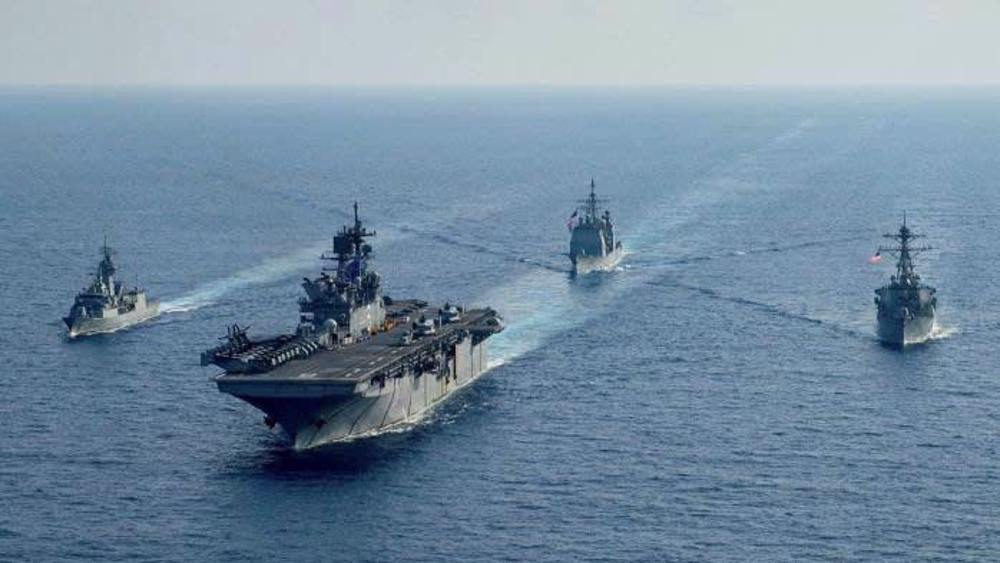
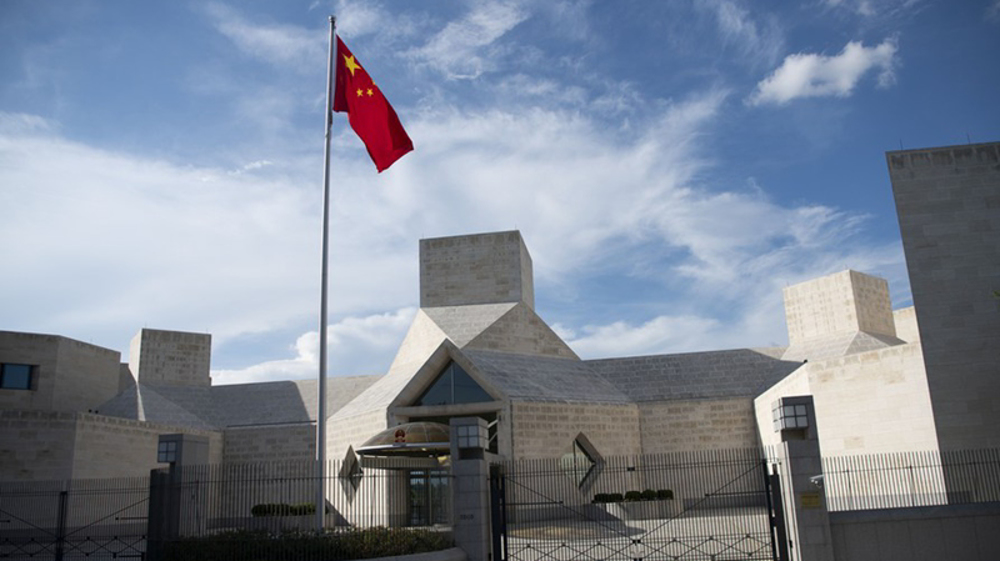
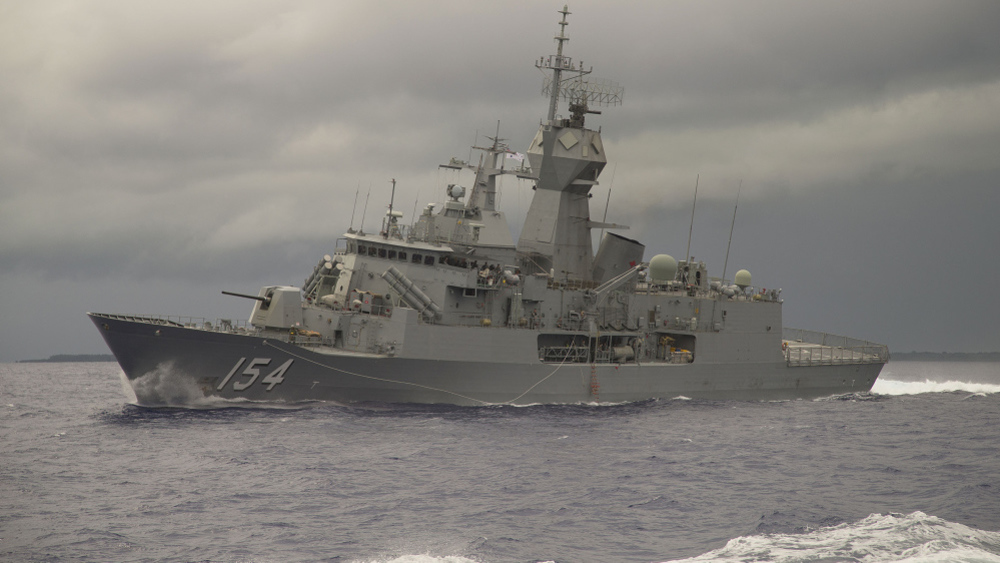

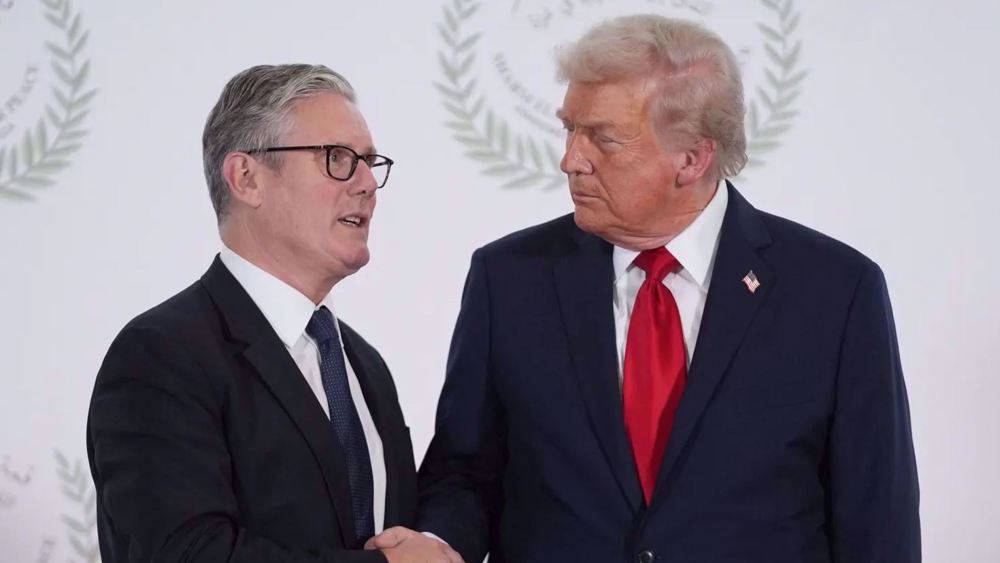
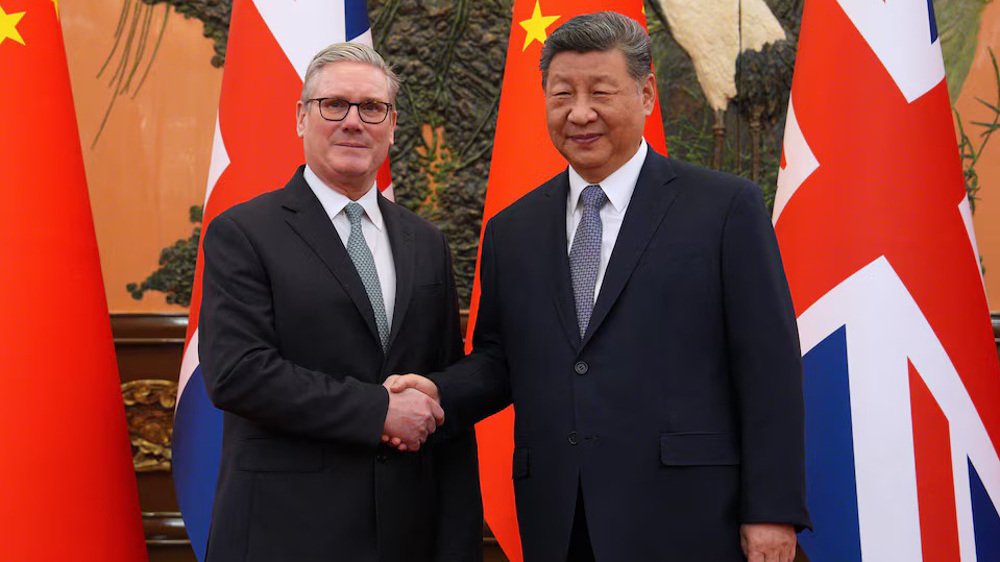



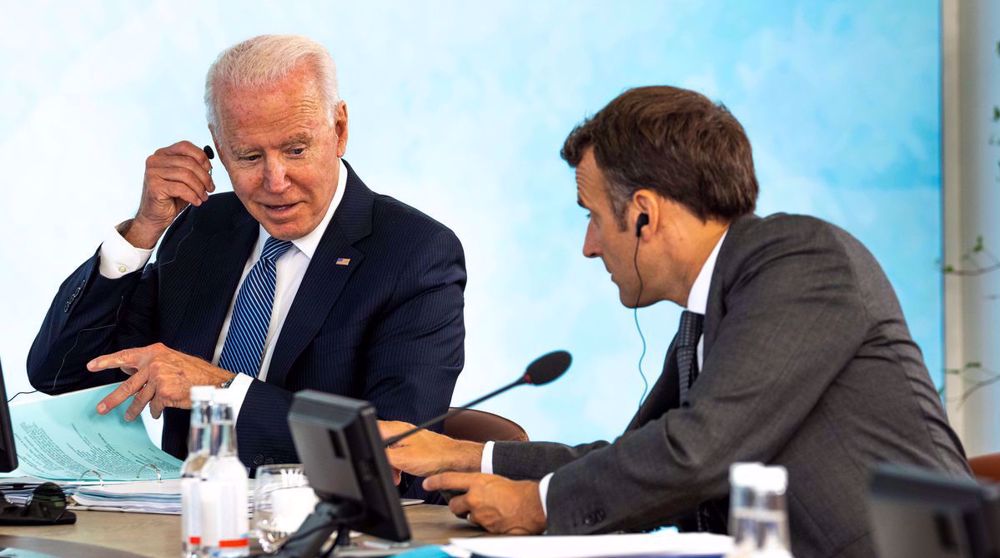


 This makes it easy to access the Press TV website
This makes it easy to access the Press TV website